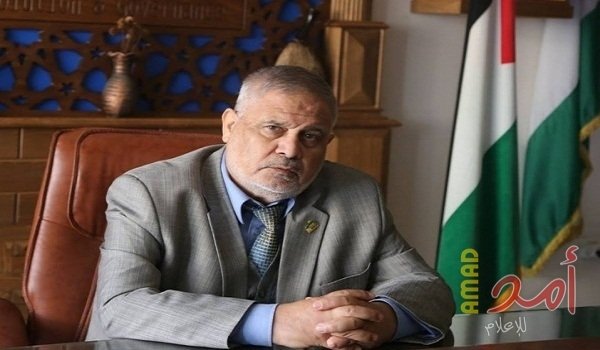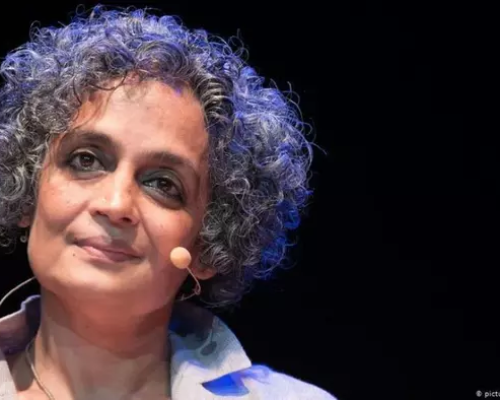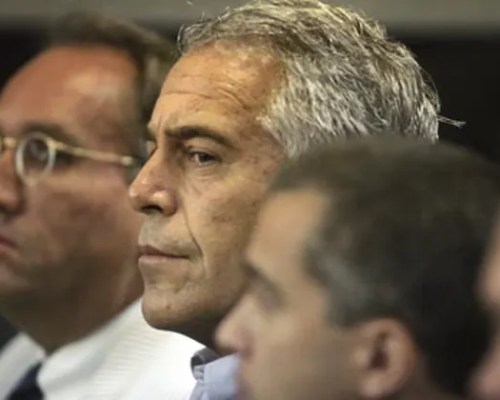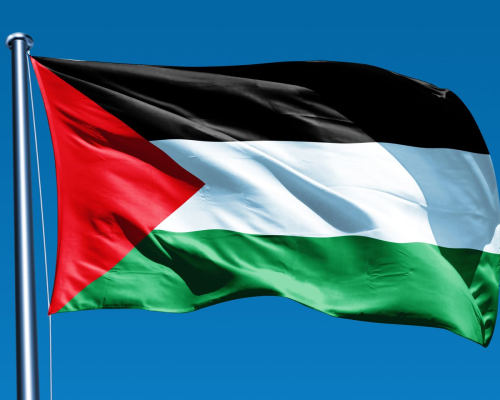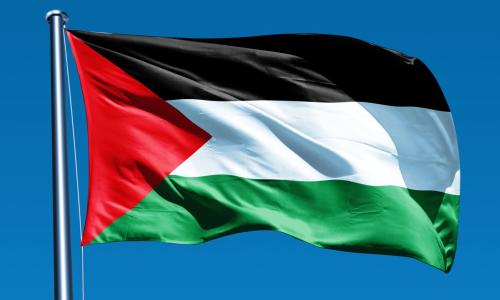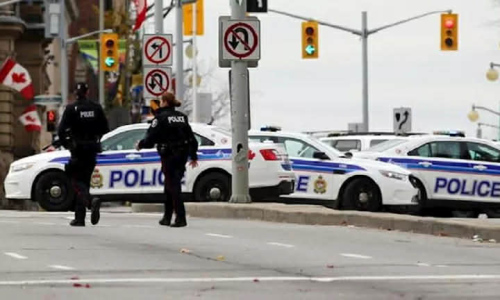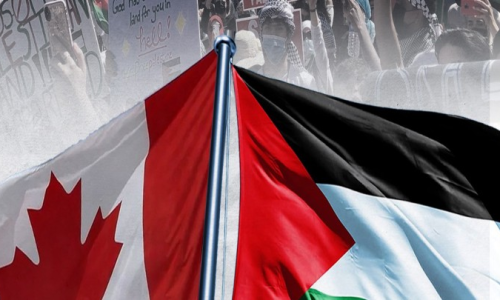By Taghreed Saadeh
Dr. Ahmed Yousef, a senior figure in Hamas and former advisor to the Palestinian Prime Minister and Hamas leader, the late Ismail Haniyeh, offers a different perspective on the Al-Aqsa Flood operation and the events of October 7. He believes that Hamas miscalculated in its planning of the operation, which was originally intended to thwart Israeli Prime Minister Benjamin Netanyahu’s plan to forcibly displace Palestinians from the West Bank and Gaza.
Dr. Yousef, who spent nearly two decades as a professor of political science at American universities, argues that Egypt’s renewed involvement in Gaza is the key to resolving the current crisis. He calls for reconstruction and the creation of conditions for presidential and legislative elections in Palestine, as well as elections for the Palestinian National Council of the PLO.
Despite the criticism and differing views, Dr. Yousef—one of the founding members of Hamas—stresses that he will not abandon the movement. He calls for Hamas to transform into a political party to salvage what remains of its popularity.
Yousef, who previously served on Hamas’s Shura Council، the movement’s highest decision، revealed that he has engaged in dialogue with Israeli figures, including noted Israeli peace activist Gershon Baskin.
“Zaytoun News” met Dr. Yousef. He lives in a tent in Gaza, where he shares the same harsh conditions endured by the Palestinian people. We asked him about the situation in Gaza, possible exits from the current crisis, his communications with Americans and Israelis, and other political matters. The following is the interview:
You served as an advisor to Haniyeh and have recently criticized Hamas on social media. Are you still part of the movement, or are your critiques meant as internal reform efforts?
If what I’m doing is considered criticism, then it falls within the realm of advice and consultation, an attempt at reform and course correction. I have been with this movement since its inception in 1987. Many of us leaders came from diverse backgrounds, some studied in the U.S., Germany, Britain, or France; others in Sudan or at Imam Muhammad ibn Saud University in Saudi Arabia. This diversity naturally results in different viewpoints, but in the end, we have a Shura (consultative) authority that makes the final decisions.
I come from an academic background and lived and worked in the U.S. for over twenty years. During that time, I developed political insight and gained the courage to speak my mind, as both a professor of political science and someone who has spent 35 years visiting global conflict zones and learning from them. Disagreements are natural, and they encourage a healthy exchange of perspectives. I remain part of the Islamic movement and will continue to be until fate dictates otherwise.
You’ve spoken about the educational background of the movement’s leadership, and it was reported that you said many leaders do not read and are only deeply versed in religious matters. Is this accurate?
Yes, there’s a mix of cultural and militant backgrounds among the leadership, and I see that as a strength, not a weakness. We have Shura bodies that guide the decisions of the Political Bureau. All the movement’s policies and stances are decided through consultation.
How do you assess the current state of affairs in Gaza?
It’s utterly catastrophic, there’s nothing left to mourn. Everything is in ruins. Our homes are destroyed, and so are the institutions that gave Palestinians a reason to stay and remain rooted in their land, hospitals, schools, universities, aid organizations, all flattened.
When the war ends, there will be no homes left for Palestinians to return to. People will have to start their lives from scratch, if they even choose to stay. Otherwise, voluntary or forced displacement will be the only option. This is exactly what Israel is pushing for, echoing Bezalel Smotrich’s 2017 plan, Palestinians must choose between living under occupation without any civil or citizenship rights, voluntary departure, or extermination.
Some Israeli voices have explicitly said that all Palestinian children are targets and must be eliminated because they are “enemies of the State of Israel.” Sadly, this is the reality we are facing. But it’s not the first attempt to forcibly displace Palestinians, whether to Sinai or Jordan. The truth is, people are clinging to their right to remain in this blessed land, where holy sites give them the resolve to stay and sacrifice.
Living conditions have become unbearable, tattered tents, a terrifying silence from Arab states, and neglect. Were it not for some large protests in Europe and America, and the voices of politicians and parliamentarians who have called to delegitimize the occupation and demanded an end to the war, there would be no hope at all.
We can only pin our hopes on these rare voices in an unjust world that has, for the past 77 years, colluded with Zionists and allowed extremists to settle here under the myth of a biblical Israel.
What solutions do you see for getting out of the current impasse?
In my view, the way out of the crisis we are experiencing lies in reestablishing ties with our Arab depth especially Egypt. Egypt must be given a role again, as it had in the past. After the first Nakba in 1948, the Gaza Strip was placed under Egyptian administration, which assumed responsibility for caring for the people and preserving their presence on what remained of Palestinian land in Gaza. This continued for about 11 years until 1967.
We later returned to Palestinian self-governance through internal elections. Today, I believe we are entering another transitional phase that requires Arab particularly Egyptian administration, supported by Arab and international efforts, to help us rebuild and stabilize. Only then can we create the conditions for legislative, presidential, and Palestinian National Council elections. This requires significant Arab and Egyptian involvement, as well as support from some Gulf states to rebuild the infrastructure that will allow Palestinians to reestablish a semblance of stability.
The Palestinian people have sacrificed thousands of lives, and their history is one of resistance. But was it fair for so many people in Gaza to die while Hamas did little to protect them or even to step back for the sake of preserving Palestinian lives?
Liberation and return are goals that require the existence of a resistance force within the Palestinian struggle. That’s why various factions were militarized as part of the resistance. Hamas and other groups counted on Arab and Islamic support as well as solidarity from the free peoples of the world to rally behind the Palestinian cause.
Unfortunately, the conspiracy against us has been ongoing since Oslo. That agreement never yielded results, and Israel continued to stall and evade any real commitments. In response, Hamas focused on strengthening the resistance, hoping that a neighboring state would provide strategic depth and backing for the Palestinians.
Sadly, many Arab regimes have succumbed to the American Israeli Western alliance. They’ve practically abandoned the Palestinian cause. Neither Arab governments nor Arab streets rose to support us. This emboldened Netanyahu to proceed with massacres, starvation, and blockade confident that the U.S. and the West would deter any serious Arab intervention.
As a result, tens of thousands were martyred, wounded, kidnapped, or disappeared. We’re now speaking of nearly a quarter of a million Palestinians affected. I believe Hamas leadership made a grave error in miscalculating the consequences of the October 7 “Al-Aqsa Flood” operation. The move handed Netanyahu and the far-right religious Zionist movement the perfect pretext for a massive military assault.
Their original plan may have involved displacing Palestinians from the West Bank into Jordan. Then came Gaza. Some within Hamas’s military leadership may have wrongly believed that such an operation could serve as a preemptive strike to force Israel to reassess its expansionist ambitions. But the calculations were flawed, and the consequences tragically severe
As someone closely following Palestinian affairs, I wonder: The “hostage card” has been stagnant since 2014, and prisoner exchange negotiations have produced nothing. Why did Hamas think that increasing the number of hostages would change the equation?
Unfortunately, Israeli captives were already being held, and Netanyahu has used their release as one of his declared war aims a supposed “clear victory.” Hamas, for its part, believes that the release of these hostages should not come without a major prisoner swap involving tens of thousands of Palestinian detainees in Israeli prisons, many of whom are serving life sentences or long terms.
Additionally, over the past two years alone, more than 15,000 Palestinians have been arrested. Hamas is hoping to negotiate a large scale exchange similar to the Shalit deal, whereby Palestinian prisoners are released, the war ends, and political efforts resume.
The movement also hopes that Arab and Islamic nations will participate in brokering a political solution, and that Western and international opinion may begin to shift toward a more just resolution for Palestinians.
Many Hamas leaders have been glorifying the bloodshed caused by Israeli crimes. What is your opinion on this narrative?
I think there has been some exaggeration in how the catastrophe is framed in terms of heroism. Undeniably, the fighters on the ground performed admirably and inflicted heavy losses on the Israeli side both in human and material terms. But that’s not the whole story.
We must also remember the massive number of Palestinian martyrs. This war has trampled all international laws and norms. Israeli leaders and generals should eventually face justice as war criminals in the International Court of Justice and the International Criminal Court. If Europe’s stance changes in favor of justice and fairness for Palestinians, there’s real potential for holding Israel accountable. That could lead to the severing of weapons deals and trade relations by numerous European countries.
In all national liberation movements, there is a kind of investment in the sacrifices of martyrs. This blood spilled in the course of resistance becomes part of a nation’s collective history. All peoples who achieved independence from colonialism paid with lives. So, yes these large scale losses are viewed with pride and reverence, not as a sign of doubt in the resistance’s legitimacy or capabilities.
There is a vast power imbalance, and a glaring injustice when it comes to recognizing the rights of people to resist occupation. So, while Hamas may have miscalculated in launching the October 7 operation, it still sees the blood spilled as sacred and worthy of honor, not something to be diminished.
Is Hamas still strong in Gaza or is its strength being exaggerated to justify displacement plans and continued military operations?
There’s no doubt that Hamas still retains influence in Gaza, despite the enormous losses and the massive displacement of more than two-thirds of Gaza’s population. Most are now in desolate coastal areas like Al-Mawasi. A few have returned to what remains of their homes, wanting to be near the dead still buried under the rubble.
The talk of forced displacement and preventing the return of life in Gaza is part of a plan that has yet to be finalized. But it remains in the minds of the Zionists. This is not a new plan, they’ve long had ambitions for Sinai to host large numbers of Palestinians and become their homeland. There were proposals linking Sinai and Jordan to create a so-called Palestinian state, ideas that date back to King Hussein’s era. Egypt and Jordan firmly rejected them.
Israel hopes that destroying all life sustaining elements in Gaza and continuing starvation and siege will eventually push Palestinians to flee to Egypt in search of survival. That’s Israel’s bet. It’s trying to confine Palestinians in areas like Al-Mawasi, which lack the basic necessities of life, crowding displaced people into tent camps with no facilities or dignity.
News reports have spoken of American contacts with Hamas. Tell us about the beginnings of these talks and their goals. They seem to go back a long time?
Yes, there have been contacts with the Americans in the past, but they never succeeded due to Hamas being under siege in Gaza. I personally witnessed some of these activities. In 2009, Turkish President Erdoğan carried some of these messages during Obama’s presidency. There were plans for meetings with the Americans in Europe. Communication lines with the U.S. have never been completely cut off.
Dr. Mousa Abu Marzouk, for example, met with American political and diplomatic figures. But U.S. policy toward Israel is largely shaped by the Israeli Foreign Ministry, Netanyahu, and Israel’s deep state. They influence America’s stance on Palestinians and Gaza.
Still, the Americans have their own agenda. Trump promised the American people an “America First” approach. Although this war began during his administration, he was unfortunately subjected to the Israeli agenda, pushed by Christian Zionists in the U.S., a powerful force in the Republican Party and the White House. They believe that the return of Christ is contingent on the rise of Israel. So, they view support for Israel as a religious duty, pushing the administration to back Israeli expansion “from the Nile to the Euphrates.”
That’s the stance of Trump and his administration. Even though he is now trying to distance himself from Netanyahu’s policies—especially as Netanyahu is being accused of war crimes and Israel is being charged with genocide—this war has caused a rift between the U.S. and Europe. Many European countries now believe Israel must be punished and arms exports to this rogue state halted.
The Europeans are firm in their position that Hamas must be removed from power. How do you assess Europe’s stance?
There’s no doubt that the Europeans want Hamas out of power as a governing authority and armed movement. They prefer to see it transformed into a political party, one that reflects the movement’s goals and aspirations within a political and national framework.
I believe Hamas can remain part of the political decision-making process and serve as a partner in governance, especially if it continues to win popular support through elections. We must recognize that the Palestinian people are Muslim, with aspirations shaped by both nationalist and religious convictions. Many people see the Palestinian cause as primarily an Islamic issue especially the status of Al-Aqsa Mosque which is sacred and central to Palestinian identity.
This issue resonates with the broader Arab and Islamic world. Palestine remains the central cause of the Arab and Muslim nations. You can’t separate people from their beliefs. This cause is inherently part of the Palestinian national struggle, whether through armed resistance or political engagement.
The Israeli activist Gershon Baskin spoke about his contact with Hamas, especially with Ghazi Hamad. Tell us more about the nature and timeline of these communications, and their results.
Baskin is known as a moderate Israeli. He has connections with several figures, including Ghazi Hamad and myself at one point, particularly during the Gilad Shalit case. Some of his efforts helped accelerate the 2011 prisoner exchange deal.
He is a balanced and moderate man who supports Palestinians’ right to a state. He is not a radical or extremist like Netanyahu or the far-right Zionists in the Israeli government. He has proposed ideas that are at least fair to Palestinians and that could lead to peace.
Hamas was accused during Mohamed Morsi’s presidency of being part of the broader Muslim Brotherhood project. Tell us about that period, what was Hamas aiming for, especially since it avoided using the term “resistance” for over two years? Was that preparation for something? What was offered to Hamas at the time?
No doubt that after the Arab Spring, the Islamic movement across the region gained momentum including in Gaza. People had high hopes for the emergence of a neighboring Islamic state like Egypt, with its vast capabilities and resources.
The Brotherhood had always emphasized that Palestine is the central cause of the Arab and Muslim world. So there was hope that Egypt would become the Arab anchor, capable of offering political, military, and popular support to Gaza.
Yes, Hamas traces its roots to the Muslim Brotherhood, but it moved beyond that after 2006. Its government began thinking about the future of the Palestinian cause, not based on Egypt’s political agenda, whether under Morsi or anyone else. Hamas decided to focus on its people’s needs and pursue the project of return and liberation.
Hamas, as a national liberation movement with an Islamic identity, hoped that Islam in the Arab world could be a foundation for strong support, so it could effectively confront the Israeli occupation. But Israel, protected by American power and influence, thwarted this hope. After Morsi was ousted, Egypt returned to a different set of calculations. Hamas had hoped its moderate political rhetoric would deprive Israel of excuses to continue its aggression and blockade. The movement wanted to govern Gaza effectively and maintain popular support, support it had successfully secured since winning the January 2006 elections.
What were the origins of the division, why did the movement (Hamas) undertake it, and do you believe this division hindered or added to the Palestinian cause? If things were to go back to how they were before, would Hamas do it again?
There is no doubt that this division broke the backs of all Palestinians. Whether we view it as a coup or decisive control, it has become, unfortunately, a dagger in the side of the Palestinian national movement. It severely weakened the cause. After this division and the failure of the Mecca Agreement, we ended up with two governments in a surreal reality, two governments for a people without a homeland. Unfortunately, President Abu Mazen continued to manage the West Bank as if he had abandoned the Gaza Strip, while Hamas governed Gaza as though it had no connection to the West Bank.
This meant losing one of the few achievements of the Oslo Accords, namely the political unity between Gaza and the West Bank as a prelude to a Palestinian state. We lost the bet of maintaining and empowering the Palestinian Authority as a means to preserve the project and to remain committed to the PLO as a political, legal, and resistance framework an institution that had achieved significant international accomplishments for the Palestinian cause. With the division, we lost all that Oslo had achieved and instead found ourselves embroiled in political squabbles between Ramallah and Gaza disputes that Israel has greatly benefited from.
Despite the many reconciliation efforts, initiatives, and hosting by Arab and Islamic countries and even international powers like Russia and China, we failed to reunite. It’s painful that, over many years, we couldn’t maintain internal unity or agree on common political ground to protect our national project, strengthen ties with our Arab and Islamic depth, and capitalize on growing international support for Palestinian rights.
Following this genocidal war, this immense destruction what some now call a second Nakba, things won’t return to how they once were. Many Palestinians, if given the opportunity, may leave the country, leaving behind a population living under conditions worse than those of Arab citizens inside Israel, who are treated as third-class citizens. The chances of revitalizing the national project to resist this occupation will take years of rebuilding, merely to restore what remains of Gaza especially as Israel seeks to seize 70% of the Strip, aiming to displace 1.5 million Palestinians and confine the rest to overcrowded displacement zones like Al-Mawasi and Gaza’s coastline.
Some observers say Hamas sabotaged Oslo, later accepted a 1967-based state, caused the internal split, and more recently escalated matters with the hostage situation. Do you agree that Hamas’s actions have collectively obstructed the Palestinian project, or do you think they were seeking a political solution on their own terms to stay in power?
There are indeed those who criticize Hamas harshly, objecting to its Islamic-oriented vision, claiming that Hamas disrupted Oslo’s achievements and weakened Palestinian unity. Hamas, for its part, believed it could offer an alternative project, one that could fulfill Palestinian aspirations more effectively than Oslo.
Hamas counted on support from the Arab and Islamic world and hoped international positions would shift in favor of Palestinian rights. But matters did not unfold as some Hamas leaders had envisioned, and things went off track. The division persisted, the compass was lost, and we ended up unable to protect our national project. We’re losing the future of this project while confronting an extremist, religious Zionist government working rapidly to expand settlements leaving no land in the West Bank for a future Palestinian state.
The expansion of settlements is narrowing life in the West Bank, pushing many Palestinians to consider emigration to Jordan. Sadly, this is the reality. Among settler and religious Zionist circles, there’s even talk of returning settlements to Gaza, undoing the 2005 withdrawal and ending any Palestinian administrative control there.
What is the best path forward for the Palestinian people and their cause, based on your experience in politics?
Unfortunately, sidelining the PLO and assuming the Palestinian Authority alone could achieve major gains created deep divisions in vision and conviction. Hamas believes it can be part of the PLO and contribute to its regional and international achievements. But President Abu Mazen has sought to reduce the PLO to just another office under the Authority’s control, making unilateral decisions that do not reflect the collective Palestinian consensus.
This centralization fragmented the Fatah movement even before Hamas emerged demanding a role in the PLO. While compromises may be possible, since 2007, President Abbas has insisted on consolidating power, claiming to represent the PLO, the West Bank, and the Palestinian diaspora, trying to avoid conflict with Hamas. This was a failed strategy.
Had Abu Ammar (Yasser Arafat) been alive, things wouldn’t have reached this catastrophic level. Now Gaza and the West Bank feel like two separate homelands. Bridges between them are nearly impossible to build. Israel exploited this and deepened the rift between Fatah and Hamas. It also fragmented Fatah into multiple factions, some of which don’t follow the President’s leadership.
We’ve all made grave mistakes. The lack of goodwill meant we failed to preserve unity. Everyone began to overestimate their own power, Hamas in Gaza, believing it leads the national project, and Abbas in Ramallah, committed to his own vision and policies. Abbas, by accepting to remain under occupation, essentially allowed Israel to preserve his rule while undermining the broader national project.
Why hasn’t Hamas disclosed its losses in this war?
It’s only natural that Hamas hasn’t revealed its losses because the war is still ongoing. No one reveals their weaknesses in the midst of battle. When the war ends, the full scale of the losses leaders, civilians, homes, infrastructure, education, health, humanitarian organizations will become clear.
Israel’s systematic destruction of more than 80% of Gaza’s resources and reconstruction capacity is a threat to our future existence on this land.
What is your advice to Hamas now? And to the leadership in Ramallah? (Given that you’ve said you stand at an equal distance from both sides.)
My advice to President Abu Mazen is to reactivate the Palestine Liberation Organization (PLO) as a unifying national framework with a proud record of national and international achievements.
As for Hamas, it must accept that what happened significantly affected its standing and legitimacy as a resistance movement. Hamas should transition into a political party to preserve what remains of its popularity and legacy in Palestinian minds. It still has a long standing ideological identity and a historical record that resonates with generations raised on Islamic thought and resistance values.
Whether this resistance is armed or non-violent, it must be part of a clear political agenda. Right now, we must block Netanyahu’s plans to reoccupy Gaza. We should accept an interim phase involving Egyptian administration with European oversight, under a Palestinian leadership composed of widely respected figures and supported by a technocratic team.
This transitional leadership should work until conditions stabilize, security returns, and democratic elections are held where all factions can participate. The resulting political leadership must be based on national partnership and a shared framework to guide our struggle political, and where necessary, strategic pressure on Israel to accept our right to a state and homeland.
A final word to all Palestinian leaders?
I believe the strongest card we now have is political engagement. Western public opinion is shifting dramatically in our favour. Peaceful resistance through broad grassroots movements in the West, and leveraging the presence of large Muslim communities, is essential.
The humanitarian imagery of Palestinian suffering has had a deep impact. Israel has largely lost its self-proclaimed “victimhood” narrative. It’s now clear this was always a lie. Israel is a rogue state that has committed genocide against Palestinians. Its leadership is wanted by the International Court of Justice and the International Criminal Court.
Going forward, we must play our cards wisely politically, diplomatically, and morally. We are the victims. Israel is a colonial, settler, bloodthirsty regime that wants to eliminate the Palestinian people.
International law had given Palestinians some legitimacy even before Oslo. Preserving and building on those gains now requires less military engagement and more political, diplomatic, and humanitarian strategy in the coming years.
We must amplify the voice of the victim and ensure it resonates in parliaments across Europe, and even in the United States—where many Jews themselves are protesting Israel’s crimes and the actions of religious Zionism and the far right, who are committing atrocities in the name of Jews around the world.
Profile
Dr. Ahmed Yousef
Former member of Hamas’s Shura Council for four years, the highest governing body of the movement.
Political advisor to Ismail Haniyeh from 2006–2010.
University professor in political science and media studies in the U.S. and Gaza.
Director of the House of Wisdom Institute for Strategic Consultation and Conflict Resolution.
Author of 53 books in Arabic and English on Palestinian affairs, Islamic movements, relations with the West, and the Palestinian-Israeli conflict.

